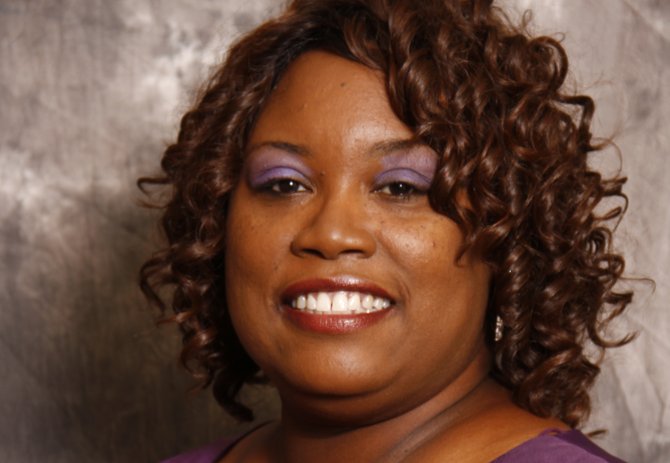After the video surfaced of Ray Rice's assault of his now-wife, Janay, and people on the Internet started asking questions that sounded an awful lot like victim-blaming, an author named Beverly Gooden took to Twitter to explain why she stayed with her abusive husband for more than a year.
Using the hashtag #WhyIStayed, Gooden explained—and legions of others followed—her reasons for remaining in the relationship: She believed he would change, her pastor counseled her on the biblical consequences of divorce, she was isolated from her family and support system. And there were other practical reasons: "I had to plan my escape for months before I even had a place to go and money for the bus to get there," Gooden tweeted.
Wendy Mahoney, executive director of the Mississippi Coalition Against Domestic Violence, says women—85 percent of domestic-violence victims are women—stay for myriad reasons, including not wanting to leave the familiar environs of their homes and facing the stark reality of everything they would need to reestablish themselves in a new place. Coming up with cash for passenger fares, housing and utility deposits can seem like especially insurmountable obstacles considering that domestic-violence victims are often subjected to economic abuse, shut off from accessing household finances.
"These types of barriers can hinder individuals from leaving an abusive situation," Mahoney said.
In Mississippi, one of those barriers is being lowered. On Sept. 10, the Mississippi Public Service Commission, which regulates private utility companies in the state, approved a new rule that would provide a 60-day utility deposit waiver for people who are certified as victims of domestic violence by a shelter. The waiver applies to all regulated utilities that the PSC has jurisdiction over, which does not include municipal utilities such as the city of Jackson's water system.
"This simply gives them some breathing room," said Northern District Commissioner Brandon Presley, who started developing the rule a few months ago because domestic-violence victims in rural areas lack access to temporary housing that victims closer to big cities have.
Presley said his rule was modeled on similar measures in Louisiana and Texas, "but goes further in protection of confidentiality of victim's identities and prevention of shifting costs to other utility customers." The rule passed the PSC unanimously, 3-to-0, but did have some resistance from some utility cooperatives.
Jim Herring, a former Mississippi Republican Party chairman and lawyer who represents both the Mississippi Rural Water Association and Madison County's Bear Creek Water Association, told the Associated Press that his clients favor helping victims of domestic abuse but believed the PSC overstepped its authority in setting the rule.
The rule, which goes to the Mississippi secretary of state for publication before going into effect, states that a security deposit is different than a rate and that the rule should not be construed as the PSC's attempt to run a utility's day-to-day affairs. A call placed to Herring's Canton law office was not immediately returned.
Presley says he bent over backward to allay the concerns of the utility companies in coming up with the final language for the rule.
"If their goal was for me to withdraw my proposal, that wasn't going to happen," he said.
Presley and his staff also worked with domestic-violence advocates to address their concerns as well. Earlier versions would have empowered law enforcement officials to certify individuals as victims of violence, but in the final rule, that was authority given to solely to domestic-violence shelter professionals. They also added language to strengthen privacy protections for people who receive the waivers.
Sandy Middleton, executive director of the Center for Violence Prevention in Pearl, called the rule another tool to help people who, despite being abused, may have a job, children or other considerations preventing them from uprooting and moving into transitional shelter.
"The main thing we know about victims who are fleeing for their safety is that they leave with few belongings and little or no money," Middleton said.
The PSC's deposit-waiver rule came one day after the video footage of Ray Rice, who has since been suspended indefinitely from the National Football League, went viral. Previously, Rice had received a two-game suspension for violently hitting the woman he planned to marry. The release of the Rice video, showing him knocking her out in a hotel elevator and then dragging her out of it, has sparked a national conversation about domestic violence, helped along by social-media discussions such as those Gooden's hashtag prompted.
Wendy Mahoney compared the Rice incident to Magic Johnson's admission of his HIV-positive status in the early 1990s, which shined a light on a disease that was not understood at the time. "Sometimes, it takes a figure like that" to spur the conversation, Mahoney said.
Middleton echoes Mahoney, saying that she's happy that people are now talking about domestic violence in public spaces. "Ray Rice and his wife put a face on the same experiences so many people are having across the country," Middleton said.
Now, she added: "We need to carry over those same emotions to the cases that are happening right here in our communities."



